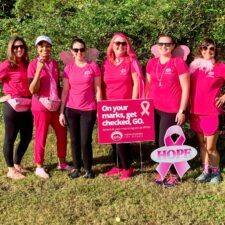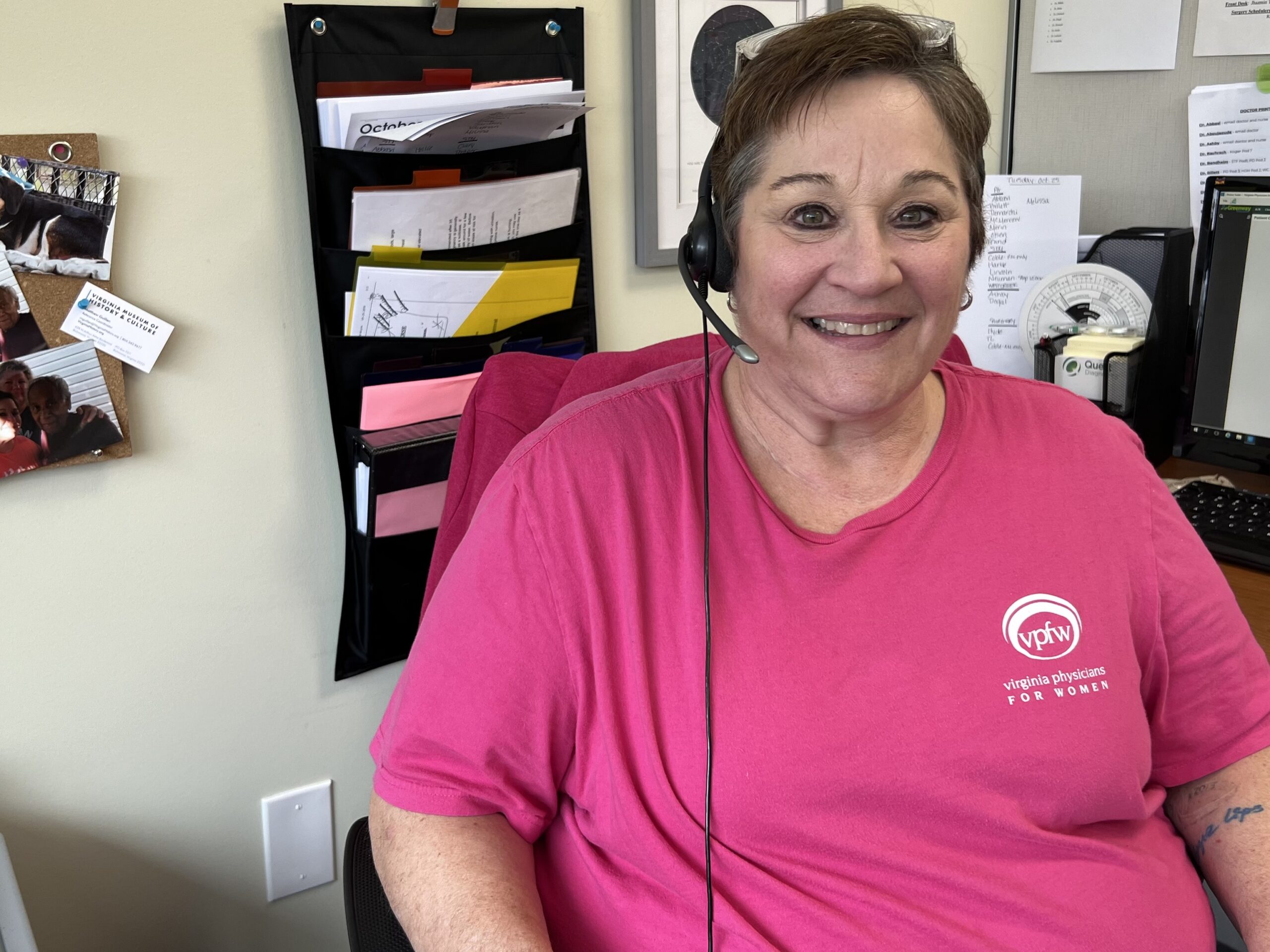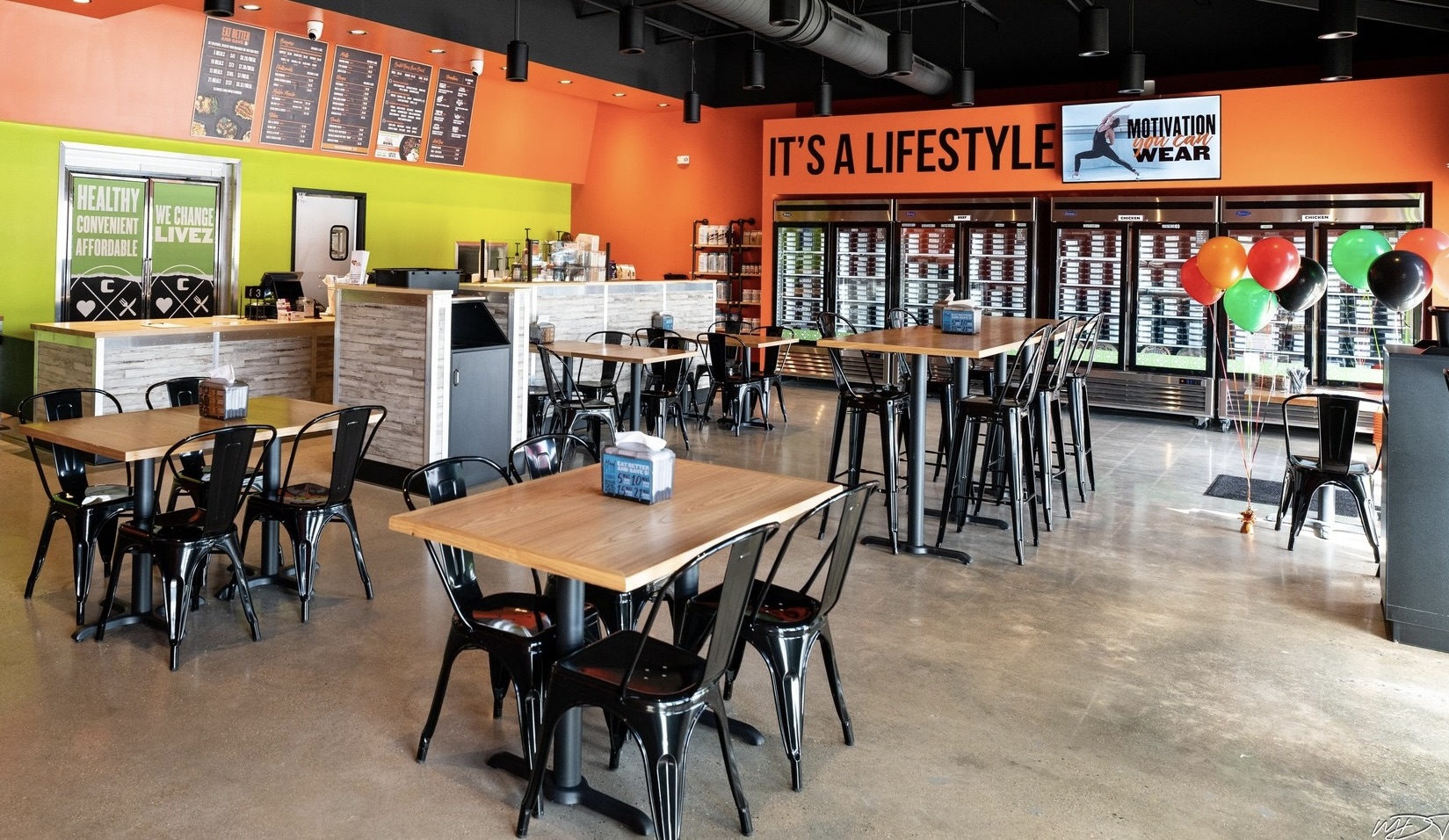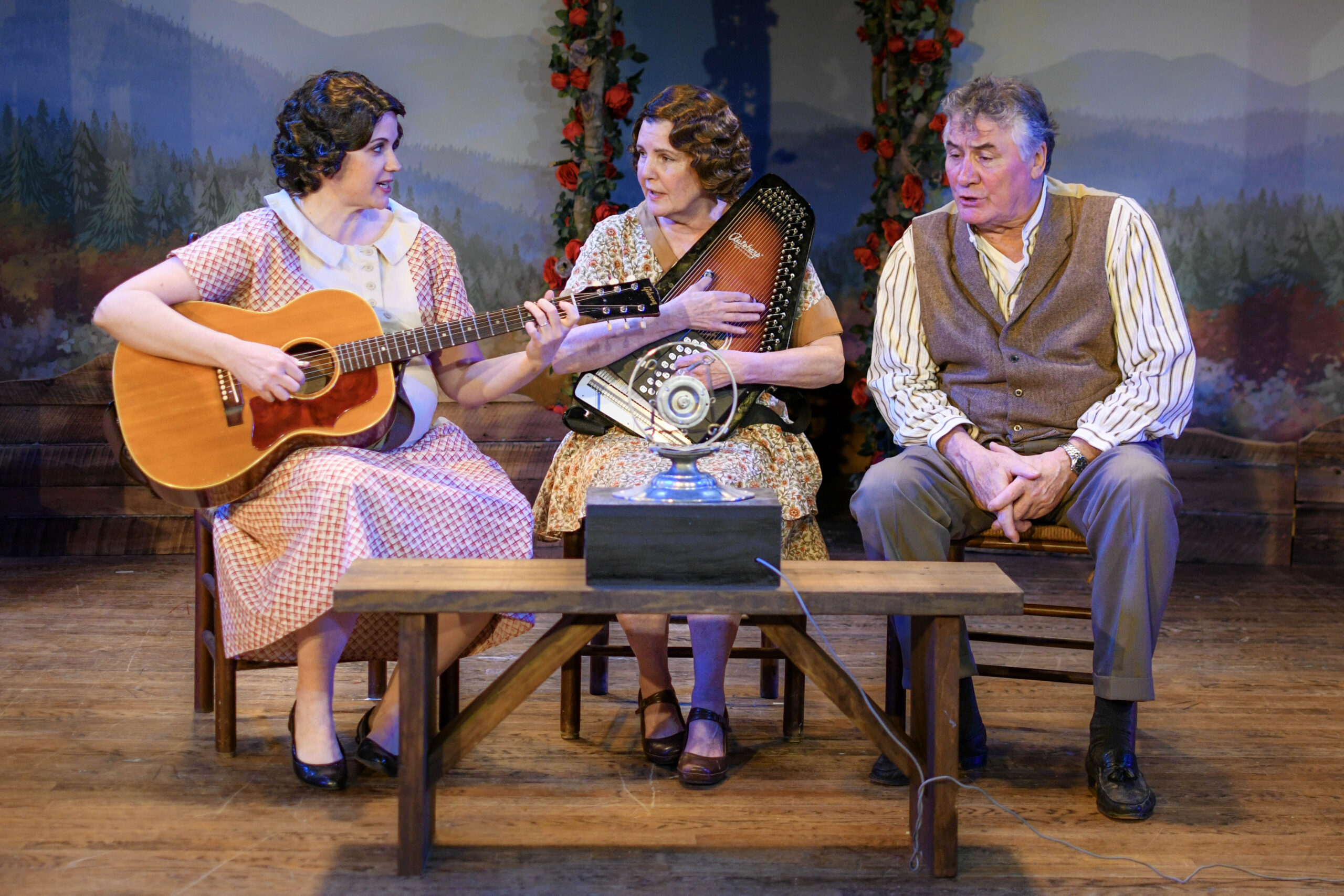As a phone nurse at Virginia Physicians for Women for almost 3 years and a family practice nurse for 12 years before that, Stacey Guillen is more used to giving care than needing it. However, this past spring, that all changed after a routine mammogram. We interviewed Stacey to find out what it’s like to receive a breast cancer diagnosis, what comes next, and what advice she has for others who are diagnosed – as well as their friends and family.
How did you find out you had breast cancer?
Back in 2017, I had a routine screening mammogram, and they found an area of calcification (a process in which calcium builds up in tissue causing it to harden). The doctors kept an eye on it for the next few years to see if it had changed. This past year, I went back for my routine mammogram at VPFW after missing a year due to COVID. A couple of days later, I was notified that there was an area the radiologist wanted to biopsy because it had changed from my last mammogram.
Did you notice any symptoms prior to your mammogram?
No, I didn’t notice any symptoms. It was all found on my screening mammogram. I never would have known anything was wrong if I hadn’t had the scans.
Learn more in Dr. Prosser’s blog post, “7 Things to Know About Breast Health.”
How did you feel when you learned your diagnosis?
I was devastated and scared. As a nurse, it’s hard to take your own advice and use your own knowledge when you are the patient.
Can you walk us through what happened after you were diagnosed, in terms of coming up with a treatment plan?
After my diagnosis, I had to go through a series of genetic testing, waiting for biopsy results and consults with the surgeons. My diagnosis was DCIS (ductal carcinoma in-situ), so my cancer was all within the breast duct and hadn’t spread to any surrounding breast tissue. This was good news – it meant there was a very high chance the cancer was treatable.
My doctor gave me a couple of treatment options: they could do a lumpectomy or a double mastectomy with immediate breast reconstruction. I chose a double mastectomy with immediate reconstruction because I didn’t want to continue having mammograms with that stress hanging over me year after year to see if something else was going to develop. It’s a personal decision that each person has to make for themselves; but for me, I felt better not having to worry about all the follow-up testing and whether it would come back.
During the surgery, they did lymph node tracing to see if there was any lymph node involvement. Lymph nodes, which transport lymph all over the body and are a key factor in your immune system, are a common place where cancer can spread to or originate from. Luckily, the results of the lymph node tracing were negative. With the type of surgery I chose, the lymph node tracing being negative, and the genetic testing being negative, I did not have to undergo any radiation or chemotherapy, for which I am very thankful.
This is why screening mammograms are so important: if the cancer had spread outside the breast, I would have had to do chemo and radiation in addition to my surgery. Early detection means a much easier route for breast cancer treatment.
See Dr. Stone’s blog post, “Screening Mammograms: When to Start, Odds of Getting “Called Back,” and How They Can Save Your Life.”
How was your recovery?
My recovery was easy considering the surgery that I went through. It was better than what I expected it to be. I felt like my recovery was not complicated because I had peace of mind knowing they had gotten rid of the cancer.
Do you have any advice for someone who gets diagnosed with breast cancer?
First, rely on your physician to answer your questions and give you the best advice. The internet can be useful, but it can also be misleading and/or confusing. As a nurse, I can tell you that your care team is more than happy to answer your questions and make sure you are getting the most pertinent information for your personal situation. All of the area hospitals have breast cancer resource centers as well. They have information and resources for almost any question.
I would also recommend finding a support group. The hospitals have wonderful in-person support groups, but Facebook is a great place to find groups online. I joined a couple support groups on Facebook, which I found to be very useful for finding information when I had questions. It was also helpful to learn from others who were going through (or had already been through) what I was experiencing at the time.
There are a lot of negatives about social media, but I’ve found it’s so nice to have those Facebook support groups available 24-7, rather than having to wait until your in-person support group meets. When you have cancer, questions can come up at all hours. The great thing about Facebook groups is that you might not even have to ask your question in the group (and wait for an answer). You can do a search within the group to see if anyone else has asked it yet. Often the answer is yes, and you can learn from what others have already shared.
My last piece of advice is to be kind to yourself and breathe. You will find that you are not in this fight alone.
How about friends and family of someone who is diagnosed? Do you have any advice for loved ones?
Just be there! Let the patient do the talking. Don’t overwhelm them with questions, and try not to focus all of your conversations and activities around breast cancer. Sometimes sitting in silence and just knowing that someone is there with you means everything. Help your loved one lead as much of a normal life as possible.
 Anything else to share?
Anything else to share?
I’d also like to add that my work family at VPFW has been beyond amazing! I had the greatest support system from my family, friends and VPFW. I never felt alone throughout the scariest journey of my life!
I am glad to have this opportunity to tell my story. It’s important to me to be able to share a glimpse of my breast cancer experience to help others who might find themselves in my shoes. For those who haven’t been diagnosed, make sure to get that annual screening mammogram on your calendar. It’s difficult to prevent breast cancer from happening, but what you can do is improve the chances of catching it early when it’s more treatable. If you ever find yourself getting “called back,” know that I am pulling for you!
VPFW offers screening mammograms at four locations. Call us at 804-897-2100 to make an appointment or set an appointment online.







